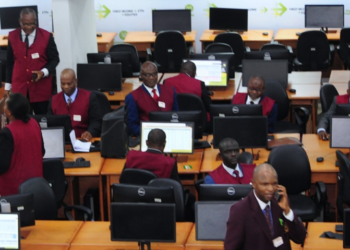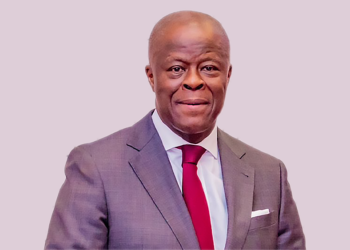Like many other country in the world, Nigeria is currently navigating through uncertain economic times. Lots of Nigerians were not surprised when the Finance Minister, Zainab Ahmed disclosed that the country had requested $3.4 billion from the International Monetary Fund, $2.5 billion from the World Bank, and $1 billion from African Development Bank.
Nigeria is currently feeling the heat. This is because the country’s sole dependence on oil has made it susceptible to a Twin Shock. The shocks, as disclosed by analysts at KPMG, are the COVID-19 pandemic and Oil Price Shock.
The multinational professional services firm explained that Nigeria’s vulnerabilities to the impact of these external shocks can be adduced to increased dependencies on global economies for fiscal revenues, foreign exchange inflows, fiscal deficit funding, and capital flows required to sustain the nation’s economic activities.
Effects of crisis on supply, demand and financial
Supply: In 2019, KPMG noted that Nigeria’s imports from China were N4.3trillion (25% of total imports), while imported manufactured goods took up about 70 per cent of total imports.
[READ MORE: KPMG calls for review of tax, other measures in line with COVID-19 reality)
No doubt, the import figures are expected to go southward by the end of 2020, as China and the rest of the world have shut their factories, imposing travel bans and in most cases total lockdowns.

This development, according to the analysts, would put more pressure on inflation numbers (12.2 per cent year on year as at February 2020).
Demand: The combination of the impact of COVID-19 and the lockdown policy responses implemented to curb the spread of the disease across the globe and locally has affected the global demand.
The depressed demand has filtered to the demand for Nigeria’s major export – oil, even before President Muhammadu Buhari pronounced a lockdown order on Lagos, Ogun states and Federal Capital Territory.
For instance, the top 5 major oil export destinations for Nigeria (India, Spain, Netherlands, South Africa, France and Italy) are all battling the pandemic and are under lock and keys.
The disruption caused by oil market wars, which was instigated by Saudi Arabia and Russia, also complicated issues for Nigeria, as it upset the demand and supply dynamics in the global oil markets.
Oil prices have fallen to a level below $30 per barrel, as inventories are accumulated and demand becomes increasingly dampened.
Coming home, the demand is expected to crash further due to the increasing cases of COVID-19 across various states, which has led to the restriction of movement and closure of businesses in major cities.
What this means: This may worsen as companies adjust to the new economic realities by laying off workers, further worsening the unemployment rate, which was reported at 23.3% according to the latest available data.
[READ ALSO: KPMG reveals 7 Fault Lines that may distort Nigeria’s economy in a new decade)
Financial channel
The impact of the twin shocks is also expected to disrupt global capital flows to emerging markets, including Nigeria. “Considering the role Foreign Portfolio Investment (FPI) plays as a major source of investment in our capital markets and fixed income markets, and more importantly, as a critical source of foreign exchange inflow to the economy,” as stated by analysts.
How it affects us: The depleting global capital flows is expected to put significant pressure on Nigeria’s foreign exchange reserves and exchange rates.
“Beyond the dynamics of foreign portfolio inflows, these Twin Shocks could potentially impact the banking sector’s access to trade lines from international banks, which will in turn impact external trade activities in the domestic economy,” the analysts said.
You may follow KPMG Nigeria’s analysis of the COVID-19 pandemicanalysis of the COVID-19 pandemic by clicking here.






















